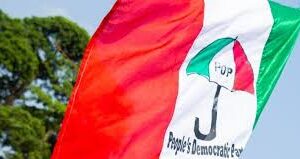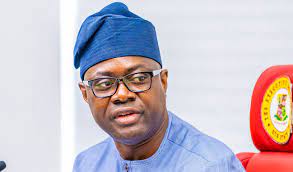Subsidy payment on petroleum products by the Federal Government of Nigeria has remained a perennial subject of controversy, with usual allegations of massive corruption always involved. JOSHUA EGBODO writes on the ongoing debate over conflicting figures
Before now
Investigation is underway in the House of Representatives, with a view to determining the actual volume of Premium Motor Spirit (PMS), commonly known as petrol consumed within the country on daily basis, upon which subsidy is computed and paid. This would not be the first probe into the subject matter, however, as one of such and memorable initiatives was way back in the life of the 7th House of Representatives.
Alarmed by the astronomical and persistent rise in the subsidy debt burden of the federal government, the then President Goodluck Jonathan-led administration took a drastic move with a decision to stop subsidy payment on PMS.
As usual, there was a spontaneous market reaction to the move, with a nationwide acute scarcity of the product, and unfortunately too, happening during the Yuletide when many Nigerians were out of their places of work, but could not return as planned, or had to do so at extreme financial cots.
The development was followed by citywide protests, even as many analysts saw same as sponsored by opposition elements in a bid to rubbish the government of the day.
The House of Representatives then, under Aminu Waziri Tambuwal as Speaker momentarily called off its Yuletide break, and sat at special session on a Sunday, to find a way out of the crisis. The session gave birth to the special Ad hoc probe panel under Farauk Lawan, to investigate and determine who was doing what, either rightly or wrongly.
Though the committee probe ingloriously ended in controversy of bribery and corruption issues involving Lawan, certain discoveries were made, which helped the government then to close some loopholes.
It was discovered that there were round-tripping of imported PMS, leaving the government to repeatedly pay subsidy on the same vessels content, and others acting as “portfolio importers”, who never own a vessel, but were being paid with simple arm-chair office computations in connivance with government agents. All ended in prosecution, with some of the cases still before law courts.
Yet another probe
With the coming of the current government on platform of the All Progressives Congress (APC), led by President Muhammadu Buhari, who in the build up to the 2015 election that brought him on board, vowing to stop subsidy payment, an exercise he said was a fraud and did not exist in real sense, many Nigerians felt relieved that the recurring decimal of acute shortages will be put to rest, but it never abated.
Like in past crises in the supply chain of PMS, the rumour mill put out reports as 2021 was winding down, that beginning from early part of 2022, subsidy on petrol would be fully removed. This led to agitations, with marketers embarking on hoarding in anticipation of hike in the pump price. Nigerians across the country were in the later weeks forced to sleep on long cues at service stations, or alternatively abandon use of their vehicles. In response, the organised labour and civil society organisations issued threats on moves that could shot down the already terribly feeble economic state of the country, leaving the entire nation in panic.
The federal government, after the National Assembly intervened made a retreat, explaining that the planned subsidy removal would not be coming anytime soon as rumoured. Minister of Finance, Budget and National Planning, Zainab Ahmed, at a meeting with lawmakers in late January 2022, announced that the plan has been suspended, until it is considered appropriate.
Back in session after the 2021 Yuletide break, the House of Representatives, after a motion raising concerns on the agitation of the organised labour and the potential effect on the economy opted to DG out the facts. Speaker Femi Gbajabiamila later set up separate committees to verify amongst other things, the actual amount of daily petrol consumption in Nigeria, and the current state of the petroleum refineries, how much money had been expended and what may be needed to bring them back to their original production capacity.
Committees in action
The separate committees and announced by Gbajabiamila later moved into action, but not without the usual issues, which pundits blamed on attempted sabotage.
Specifically, the Ad hoc committee investigating the amount so far spent as subsidy on PMS was initially faced with the inability to progress, as most of the critical stakeholders, including the Nigeria National Petroleum Company (NNPC) Limited, repeatedly failed to honour its invitation.
The Aliyu Mustapha-led panel later reverted to a sort of threat, when, especially, it was alleged that over N6trillion naira may be required as subsidy payment for PMS. It followed with demands from the Minister of Finance, details of all payments in that respect.
Details being sought, according to the chairman include the total amount released from the consolidated revenue fund of the federation and other accounts for subsidy payment for the period in question,breakdown of beneficiary companies, monthly breakdown of all payments, correspondences in respect of subsidy claims by companies in the period under review, correspondences between the Central Bank of Nigeria and the ministry in respect of subsidy payments amongst others.
New twist by the Customs CG
While the probe lasts, conflicting figures have been flying around as the volume of PMS supplied daily into the retail market by the NNPC Limited. A twist was added to the raging controversy by Comptroller General of the Nigeria Customs Service, Col. Hameed Ali (rtd), who last week faulted the figures being put forward by the NNPC.
Known and believed by many to be a very blunt person, his assertions before the House of Representatives Committee on Finance understandably sparked off a fresh debate on the subject.
Though his appearance was for an insight into the 2023-2025 Medium Term Expenditure Framework, and Fiscal Strategy Paper (MTEF/FSP), he was pushed to speak on the subsidy issue, when asked to explain customs plan to curb smuggling of the product, which was partly blamed for the rising subsidy figure.
The CG’s argument was that the daily consumption volume as computed cannot be justified by the NNPC Limited to attract the subsidy payment being put at about N6.34 trillion. “I remember that last year we spoke about this. Unfortunately, this year, we are talking about subsidy again. The over N11tn we are going to take as debt, more than half of it is going for subsidy. The issue is not about smuggling of petroleum products. I have always argue this with NNPC.
“If we are consuming 60 million litres of PMS per day, by their own computation, why would you allow the release of 98 million litres per day? If you know this is our consumption, why would you allow that release? Scientifically, you cannot tell me that if I fill my tank today, tomorrow, I will fill the same tank with the same quantity of fuel. If I am operating a fuel station today and I go to Minna depot, lift petrol and take it to Kaduna, I may get to Kaduna in the evening and offload that fuel. There is no way I would have sold off that petrol immediately to warrant another load. So, how did you get to 60 million litre per day? That is my problem.
“The issue of smuggling: if you release 98 million litre in actual and 60 million litres is used, the balance should be 38 million litres. How many trucks will carry 38 million litres every day? Which road are they following and where are they carrying this thing to?”, the CG queried.
NNPC in defence
Reacting to the posers by Ali, NNPC over the weekend attempted to defend the huge quantity reported as daily consumption of PMS in Nigeria, but rather than either of 98 million liters, or 60 million liters, it said the figure is 68 million liters. The Group General Manager, Group Public Affairs Division of NNPC, Garba-Deen Muhammad said in the statement that “the total volume of PMS imported into the country was 16.46 billion litres, which translates to an average supply of 68 million litres per day”, adding that import in the year 2021 was 22.35 billion litres, which translated to an average supply of 61 million litres per day”.
It said further that the average daily evacuation (depot truck out) from January to August 2022 stood at 67 million litres per day as reported by the Nigerian Midstream and Downstream Petroleum Regulatory Authority (NMDRA).
But NMDPRA differs
During a session with with the House of Representatives committee on finance on Monday, NMDPRA however put the daily truck out of petrol in 2022 at 62.95 million litre per day, which many followers have pointed out as being at variance with the published figures of the NNPC Limited.
Who is right?
The only way out of the quagmire in the words of pundits would be a comprehensive and independent audit. NNPC already said it was ready for a forensic audit on the matter, and so experts say the time to act on same is now.




